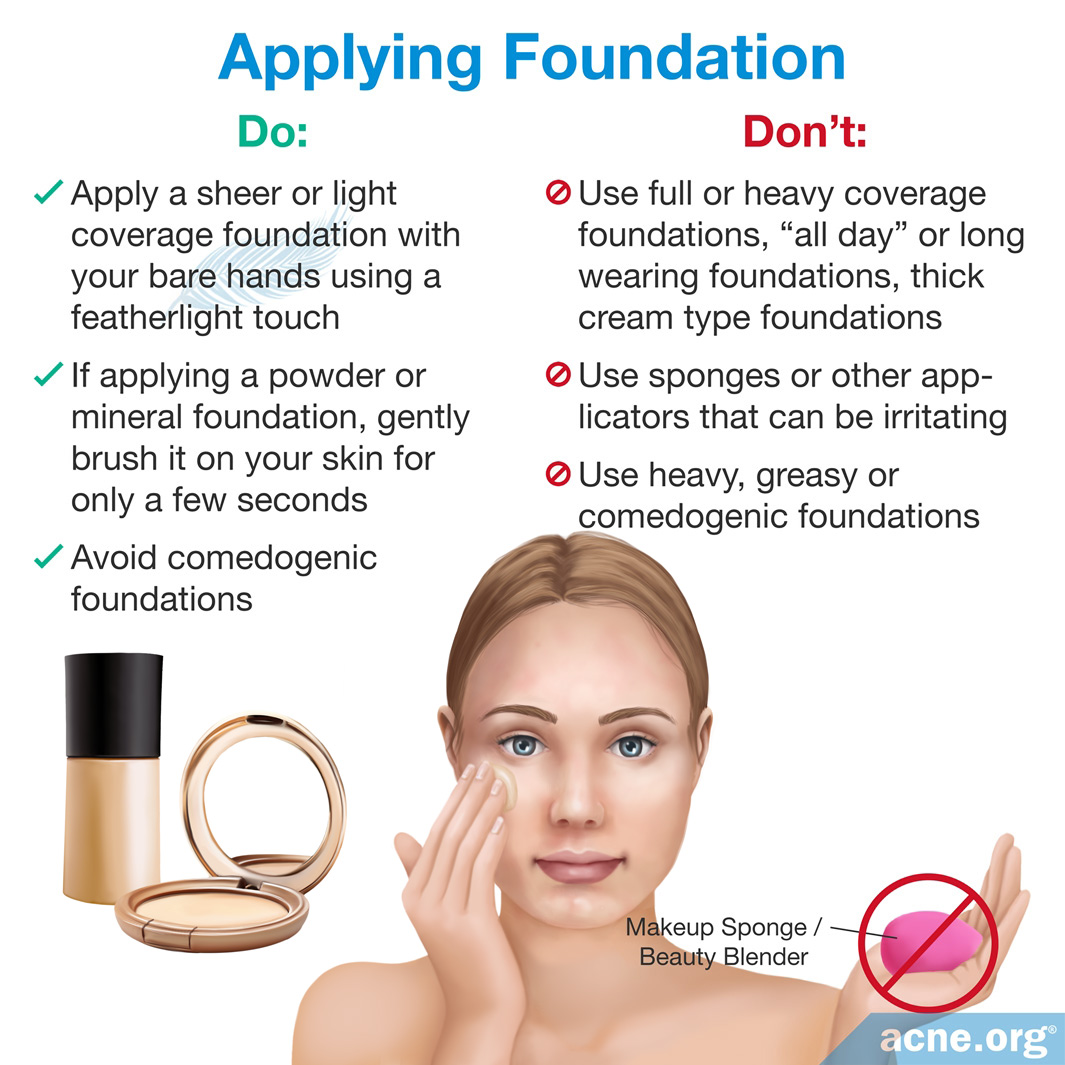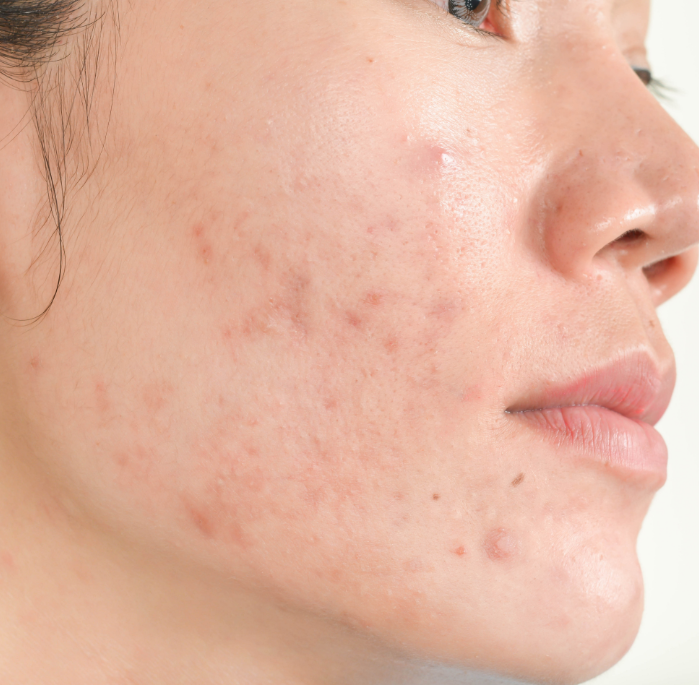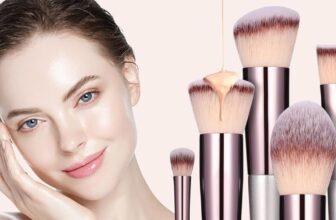Makeup can be a fun way to express yourself. But many people wonder if it leads to skin problems like spots.
This question is important for anyone who loves makeup but wants clear skin. Some makeup products can clog pores or cause irritation. This might lead to breakouts or spots. Factors such as skin type, ingredients, and application methods all play a role.
Knowing how makeup affects your skin can help you make better choices. This guide will explore the connection between makeup and spots. It will also share tips on how to use makeup safely. Understanding this topic will help you enjoy makeup without worrying about skin issues.
Introduction To Makeup And Skin Health
Many people wonder if makeup causes spots. Some think it does, while others disagree. The truth lies in how we use makeup.
Makeup can clog pores. This happens with heavy or oily products. Clogged pores can lead to acne and blemishes. Choosing non-comedogenic products helps reduce this risk.
Skin type matters too. Oily skin may break out more than dry skin. Using the right products for your skin type is important.
Hygiene is key. Always clean your makeup brushes and tools. Dirty tools can spread bacteria. This can cause more spots and irritation.
Not all makeup is bad for the skin. Some products contain skin-friendly ingredients. These can help improve skin health.

Credit: www.acne.org
What Causes Spots: A Scientific Perspective
Spots on the skin can come from many sources. Acne is a common problem. It can appear in different forms. Understanding these forms helps in treatment.
There are four main types of acne:
| Type | Description |
|---|---|
| Whiteheads | Small bumps that stay under the skin. |
| Blackheads | Open pores filled with oil and dirt. |
| Pustules | Red spots with a white center, full of pus. |
| Nodules | Large, painful lumps that form deep in the skin. |
Spots form when hair follicles get clogged. This often happens with oil, bacteria, and dead skin. Hormonal changes can also cause more oil production. Stress and diet may play a role, too.
Ingredients To Watch Out For
Many makeup products contain comedogenic substances. These ingredients can block pores. This may lead to spots and breakouts. Common comedogenic ingredients include coconut oil, algae, and some silicones. Check labels carefully.
Some harmful chemicals can also affect your skin. Look for parabens, sulfates, and fragrance. These can cause irritation or allergic reactions. They might worsen skin problems. Being aware of these ingredients is very important.
| Ingredient | Effect |
|---|---|
| Coconut Oil | Can clog pores |
| Algae | May cause breakouts |
| Parabens | Can irritate skin |
| Sulfates | May dry out skin |
| Fragrance | Can cause allergies |
Makeup Myths Versus Reality
Many believe that makeup causes acne. This is a common myth. Makeup itself does not always cause skin problems. Certain ingredients can lead to acne. Heavy or oily products can clog pores. This may result in breakouts.
Some people have sensitive skin. They may react badly to certain products. Using expired makeup can also cause issues. Not removing makeup properly can lead to skin irritation. Always cleanse your face before bed.
Choose non-comedogenic products. These are less likely to cause acne. Look for labels that say “oil-free”. Your skin will thank you for it.
The Role Of Skin Care Routines
Removing makeup is very important for healthy skin. Dirt and oil can build up on the skin. This may cause spots and breakouts. Always clean your face before bed. Use a gentle cleanser to remove makeup. Avoid harsh soaps that can irritate the skin.
Best practices for skin care with makeup include:
- Use non-comedogenic products. These do not clog pores.
- Wash your brushes often. This helps remove bacteria.
- Moisturize daily. This keeps skin hydrated.
- Choose makeup with SPF. This protects skin from sun damage.
- Take breaks from makeup. Give your skin a chance to breathe.

Credit: lamav.com
Choosing The Right Makeup For Acne-prone Skin
Choosing the right makeup is important for acne-prone skin. Look for non-comedogenic products. These do not clog pores. Hypoallergenic options are also good. They cause fewer allergic reactions.
For sensitive skin, consider these recommendations:
- Use mineral-based makeup. It is gentle and safe.
- Pick products with natural ingredients. They are less irritating.
- Avoid fragrance in makeup. It can cause breakouts.
- Test new products on a small area first.
Always check labels for key ingredients. This helps you choose wisely.
Professional Insights On Makeup And Acne
Makeup can cause spots on the skin. Some products block pores. This can lead to acne. Choosing the right makeup is important.
Dermatologists suggest using non-comedogenic makeup. This means it won’t clog pores. Always remove makeup before sleeping. This helps keep skin clean and clear.
Estheticians recommend gentle products. Look for those with natural ingredients. Avoid heavy foundations. These can worsen skin issues.
Stay hydrated. Drinking water helps skin stay fresh. Eating healthy also supports skin health. Foods rich in vitamins can reduce acne.

Credit: skinutritious.com
Empirical Evidence And Studies
Many studies explore the link between makeup and skin health. Some show that makeup can cause spots. Ingredients in some products may block pores. This can lead to acne breakouts.
Research often focuses on specific ingredients. For example, oils and fragrances may irritate sensitive skin. Non-comedogenic products are better for acne-prone skin. They don’t clog pores.
Case studies reveal different results. Some people see improvement with certain brands. Others develop skin issues after using makeup. Individual reactions can vary widely.
| Study | Findings |
|---|---|
| Study A | Makeup caused spots in 60% of users. |
| Study B | Non-comedogenic makeup helped 80% of participants. |
Personal Stories And Testimonials
Many people share their stories about makeup and acne. Some notice spots after using certain products. Others find that their skin reacts badly to certain ingredients.
For example, a user named Sarah said her skin broke out. She switched to non-comedogenic makeup. Now, her skin feels better and clearer.
Another person, John, had similar issues. He found that oil-based makeup caused his spots. After changing to a mineral-based option, he noticed a big difference.
| Person | Problem | Solution |
|---|---|---|
| Sarah | Breakouts from makeup | Switched to non-comedogenic products |
| John | Spots from oil-based makeup | Changed to mineral-based products |
These stories show that makeup can affect skin health. Choosing the right products matters. Many have found ways to manage their skin better.
Conclusion And Safe Makeup Practices
Makeup can cause spots if not used carefully. Balancing makeup use and skin care is important. Choose non-comedogenic products. These products do not block pores. Always remove makeup before sleeping. This helps your skin breathe at night.
Keep your makeup tools clean. Dirty brushes can spread bacteria. Change your makeup regularly. Old makeup can cause skin problems. Use light layers of makeup. Thick layers can trap dirt and oil.
Drink plenty of water. Staying hydrated helps your skin. Eat healthy foods rich in vitamins. These foods support clear skin. Regularly wash your face with a gentle cleanser. This keeps your skin fresh and clean.
Frequently Asked Questions
Does Makeup Lead To Acne Breakouts?
Yes, makeup can lead to acne breakouts if it’s comedogenic, meaning it clogs pores. Additionally, using expired products or not removing makeup properly can exacerbate skin issues. Opt for non-comedogenic and hypoallergenic products to minimize the risk of breakouts.
Can Certain Makeup Products Worsen Skin Conditions?
Absolutely, some makeup products can irritate sensitive skin or worsen existing conditions like eczema or rosacea. Ingredients like fragrances and alcohol can be particularly harsh. Always check labels and consider patch testing new products before applying them to your face.
How Can I Prevent Spots From Makeup?
To prevent spots, choose non-comedogenic makeup and clean your brushes regularly. Also, ensure you thoroughly remove makeup before bed. Maintaining a consistent skincare routine can help keep your skin healthy and reduce the likelihood of breakouts.
Is Mineral Makeup Better For Acne-prone Skin?
Mineral makeup is often recommended for acne-prone skin. It’s typically lighter and less likely to clog pores compared to traditional makeup. Additionally, many mineral products contain soothing ingredients that can help calm irritation and reduce redness.
Conclusion
Makeup can cause spots for some people. It often depends on skin type and product choice. Using non-comedogenic products may help reduce breakouts. Always remove makeup before sleeping to keep skin healthy. Regular cleansing can also improve skin condition. Remember, everyone’s skin reacts differently.
Pay attention to how your skin responds to products. If spots occur, consider changing your makeup routine. Healthy skin is possible with the right care and choices. Stay informed and choose wisely for clearer skin.







